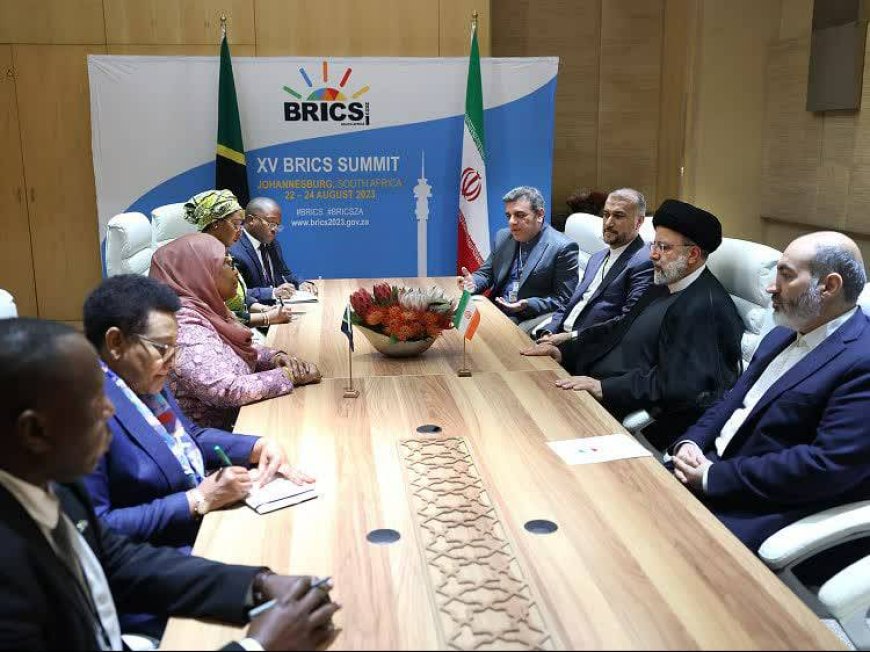Tanzania's Geostrategic Position: A Game Changer for Iran in Africa?
Tanzania's Geostrategic Position: A Game Changer for Iran in Africa?

In the vast expanse of the African continent, the country of Tanzania occupies a paramount geographic position. Situated in the eastern part of Africa, Tanzania holds significant value due to its close ties with Islamic nations and its Muslim population. Among these nations, Iran stands out as it seeks to extend its influence in these Muslim regions, capitalizing on cultural affinities and shared religious beliefs with the Shia Muslims in Tanzania.
The friendly relations between Iran and Tanzania have flourished since the Islamic Revolution, solidifying Tanzania's role as a key ally for Iran. The importance of Tanzania can be analyzed from various angles, starting with its geographical significance. The country's connection with Iran provides a gateway to international waterways, allowing for the circumvention of sanctions and neutralizing their impact. This access becomes particularly crucial for Iran, enabling it to bypass the sea blockade imposed on countries like Yemen and deliver much-needed humanitarian aid. Moreover, Tanzania's proximity to neighboring countries such as Kenya, Somalia, and Djibouti facilitates Iran's outreach to these nations.
Iran's presence in friendly African countries also serves a military purpose, acting as a deterrent against coups orchestrated by Western intelligence agencies. Leveraging their expertise gained from West Asian countries, Iranian experts make it challenging for Western nations to interfere in the affairs of African nations, which have long been dependent on Western advisors due to the legacy of colonialism. Additionally, Iran's military presence offers an opportunity to export modern and advanced equipment at affordable prices, thus creating added value for these nations, especially once the military sanctions imposed on Iran are lifted.
From an economic standpoint, Iran's presence in Tanzania opens avenues for commodity-to-commodity transactions, aligning with the agenda of the 13th government. Tanzania presents potential for extraterrestrial cultivation and economic involvement of knowledge-based companies, particularly in the field of water desalination, which is in high demand. Notably, this level of trade is not vulnerable to sanctions, as it is conducted outside the realm of dollars or euros, which can be easily targeted by the US Treasury Department. This strategic approach allows the 13th government to fulfill the needs of Tanzania while addressing domestic requirements.
The cultural dimension of Iran's presence in Tanzania revolves around strengthening Shia influence and fostering population growth. The dissemination of pure Shiite concepts in Tanzania can extend to neighboring countries, countering the extremist discourse propagated by groups like ISIS, which poses a growing concern in Africa. Ultimately, Iran's strategy aims to establish an eastern belt on the African continent, serving as a soft entry point to the region as a whole.
Iran's presence in Tanzania aligns with the broader agenda of the Eastern Axis (China-Russia-Iran) in Africa, seeking to reshape the balance of power from West to East and promote an independence-seeking and anti-Western approach among African nations. This approach is being tested in various countries across the continent, raising deep concerns among Western powers, particularly France and the United States, who fear the potential threat to their interests. The eastern and western fronts emerge as key axes of conflict on the continent, and losing ground on the eastern front would intensify pressure on the western front compared to other regions of the world.
In summary, Tanzania's strategic importance within the Eastern Axis cannot be understated. From its geographical position to its military, economic, and cultural dimensions, Tanzania serves as a gateway for Iran's regional ambitions. As the Eastern Axis seeks to shift the balance of power in Africa and promote independence from Western influences, the implications for both regional dynamics and global interests are profound.












































